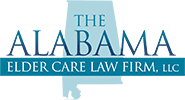
Estate planning is essential for seniors, guaranteeing their assets are distributed as they intend, their loved ones are protected, and they have clear directives in place for future healthcare decisions. However, it can be overwhelming without the right knowledge and support. Knowing some of the basics of estate planning, such as what documents are needed, is a good first step.
Will
The foundation of any estate plan is a will. This agreement specifies how assets will be distributed, including instructions for bank accounts, personal property, real estate, and other items. Without a will, seniors’ assets will be disbursed in accordance with state regulations, which may not reflect their preferences.
Trust
Trusts can serve a variety of objectives and frequently provide greater power than wills. A trust allows seniors to transfer ownership of certain assets to a distinct entity overseen by a trustee, who subsequently distributes these assets according to their instructions. Trusts facilitate asset transfers, decrease or eliminate probate—the legal process of certifying a will—and, in some situations, they may reduce estate taxes. Revocable living trusts, in particular, provide flexibility because they can be changed throughout the senior’s lifetime and take effect immediately after their death.
Powers of Attorney (POA)
A power of attorney allows seniors to appoint someone to make financial and legal decisions for them if they become incapacitated. This trustworthy individual, or agent, gains the authority to manage their bank accounts, bills, property, and assets. There are two different types of POAs: durable and springing. A durable POA takes effect immediately and continues in effect even if they become incapacitated, while a springing POA only takes effect under certain conditions, such as a significant illness or injury.
Advanced Healthcare Directive (Living Will)
If seniors are unable to communicate their medical choices, they can use an advance healthcare directive, sometimes known as a living will. This document addresses decisions such as whether they want life support, artificial hydration, and other medical procedures in the event of a terminal illness or catastrophic injury. An advance healthcare directive provides loved ones with clarity during emotionally difficult times while also ensuring that medical preferences are respected.
Healthcare Power of Attorney
While a living will express a senior’s medical treatment preferences, a healthcare power of attorney lets them choose a specific individual to make healthcare decisions for them. This person will confer with doctors and make decisions based on the senior’s desires, as specified in their living will. Having a healthcare POA might be especially useful if the senior’s condition requires monitoring and complex decisions that a living will does not cover.
Beneficiary Designations
Many assets, including life insurance policies, retirement accounts, and some bank accounts, allow for beneficiary designations. These designations supersede directions in the will or trust, which is why it is essential to ensure they are up to date. Also, seniors should be encouraged to revisit these designations from time to time to confirm their beneficiary choices are consistent with their estate plan as a whole.
These documents serve as the foundation of estate planning. By ensuring they are in place and up to date, seniors are able to safeguard their assets and protect loved ones from needless legal difficulties. Additionally, it’s important to start estate planning sooner rather than later to make sure nothing is missed.
If you or a loved one need assistance with Estate Planning in Homewood, AL, contact The Alabama Elder Care Law Firm, LLC today at (205) 390-0101
